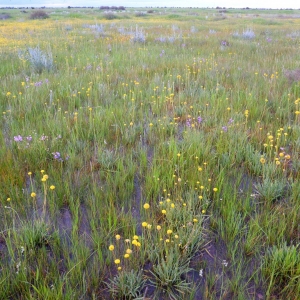This is Eileen Wray-McCann for Circle of Blue. And this is What’s Up with Water, your “need-to-know news” of the world’s water, made possible by support from people like you.
In Canada, the Indigenous Services minister Marc Miller said the Liberal government will not be able to meet a promised deadline for water remediation in First Nations communities. The promise was to eradicate all water advisories in indigenous communities by next March. The advisories caution residents to boil their water before drinking it, and in some cases warn them not to use it at all because of contamination. Prime Minister Justin Trudeau pledged to end those prohibitions while campaigning in 2015. CTV News reports that senior Indigenous Services officials told reporters that “at least” 22 drinking water advisories will remain in effect after the original deadline. Indigenous Services deputy minister Christiane Fox said the pandemic was partially to blame for the slowdown, as many First Nations communities in Canada have limited the access to their land. These health restrictions have prevented water system construction. There are currently 59 drinking water advisories in effect.
In Brazil, senior military experts predict that climate change will put the country’s energy and water security at risk. That’s according to Reuters News. The experts warned that deforestation in the Amazon region could alter rainfall patterns in Brazil, affecting hydropower plants and water supplies for major urban areas. About 63 percent of Brazil’s electricity comes from hydropower and water-related sources, according to last year’s government data. Brazil’s armed forces are responsible for monitoring the Amazon where deforestation is surging, and the military report said that troops could be stretched thin as they also respond to humanitarian crises spurred by climate change.
In Central America, those humanitarian crises have intensified. After two devastating hurricanes this fall, residents in Honduras, Nicaragua, and Guatemala plan to leave the region and head north. Some of those caravans intend to leave this week, hoping to reach the United States. As many as half a million people in those countries were displaced by hurricanes Eta and Iota, according to the International Organization for Migration. Giovanni Bassau is the regional representative of the U.N. Refugee Agency. He told Reuters that the storms were merely a tipping point for countries already plagued by corruption, economic collapse, and poor living conditions. He said “If you have a community that is run, to some degree, by the gangs, all you’re doing when you add shelters and flooding is making things worse. It leaves people with really no choice except to flee.”
In the United States, scientists in the Pacific Northwest have ended a twenty year quest to discover what is killing coho salmon in the urban streams of the Puget Sound region before the fish can spawn. The Seattle Times reports that researchers found their culprit: a derivative of a chemical used to preserve the rubber in car tires. When tires wear down they shed rubber particles, and rainstorms wash that debris from the streets into waterways. Researchers at the University of Washington Tacoma’s Center for Urban Waters knew that this grime was the source of the problem. But pinpointing the fish-killing compound in that toxic brew proved to be a challenge. For years, the team methodically sifted through more than 2,000 chemicals in stormwater. At last, they found the smoking gun, and its name is 6-PPD. When this chemical reacts with ozone in the atmosphere, it transforms into a compound called 6-PPD-quinone that is highly toxic to the Pacific Northwest’s iconic fish. In some cases it has killed between 40 and 90 percent of coho salmon in a particular stream. Now that the chemical has been identified, the next big challenge will be eliminating it. According to the researchers, it appears to be used in the production of every tire on the road.
And that’s What’s Up With Water from Circle of Blue, which relies more than ever on your support for independent water news and analysis.
Right now, your tax-deductible gift goes twice as far, thanks to NewsMatch. This challenge grant will match your one-time or monthly donation dollar for dollar. This match is ending soon – so find out more – and make a difference at
circleofblue.org.





